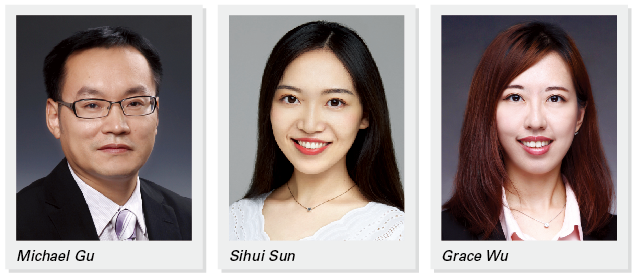 Published in Asian-mena Counsel: Anti-Trust & Competition Special Report 2019
Published in Asian-mena Counsel: Anti-Trust & Competition Special Report 2019
By Michael Gu, Sihui Sun and Grace Wu, AnJie Law Firm
Recent cases in China show that enterprises need to actively comply with the law, pay close attention to legislation and promote employees’ awareness of compliance.
 Last year marked the 10th anniversary of the implementation of China’s Anti-Monopoly Law. In the past 10 years, China’s legal framework has become more sophisticated and antitrust enforcement has been more prudent and mature. China has become one of the three major antitrust jurisdictions along with the US and EU. In 2018, the antitrust enforcement functions of the three former antitrust agencies, ie the Ministry of Commerce, the National Development and Reform Commission (NDRC) and the State Administration for Industry and Commerce, were consolidated into a newly established agency, the State Administration for Market Regulation (SAMR).
Last year marked the 10th anniversary of the implementation of China’s Anti-Monopoly Law. In the past 10 years, China’s legal framework has become more sophisticated and antitrust enforcement has been more prudent and mature. China has become one of the three major antitrust jurisdictions along with the US and EU. In 2018, the antitrust enforcement functions of the three former antitrust agencies, ie the Ministry of Commerce, the National Development and Reform Commission (NDRC) and the State Administration for Industry and Commerce, were consolidated into a newly established agency, the State Administration for Market Regulation (SAMR).
In 2018, the SAMR and local antitrust agencies strengthened their antitrust law enforcement. According to the conference held by the SAMR on December 27, 2018, the SAMR initiated 32 investigations on alleged monopoly agreements and abuse of market dominance in 2018. Among them, 15 cases were closed. Furthermore, the SAMR published seven penalty decisions and local antitrust agencies published 14 penalty decisions. The SAMR still focused on industries related to livelihood. The penalties touched a variety of industries (transportation, pharmaceutical, natural gas, electricity and furniture, etc). It is notable that in 2018, the SAMR imposed a fine of Rmb84 million (US$12.5m) in total on two branches of PetroChina for resale price maintenance. Also, the identification of competitors in the Shenzhen tally companies case demonstrates SAMR’s strict approach and its zero tolerance for monopolistic behaviours.

Two measures on administrative penalty procedures promulgated by the SAMR
On December 26, 2018, the SAMR promulgated the Interim Provisions on Administrative Penalty Procedures of the SAMR and the Interim Measures for Administrative Penalty Hearings of the SAMR. The two measures will come into effect on April 1, 2019.
Before the establishment of the SAMR, the former State Administration for Industry and Commerce, the General Administration of Quality Supervision, Inspection and Quarantine of China, the China Food and Drug Administration, and the Price Supervision and Inspection and Anti-Monopoly Bureau in the NDRC were responsible for their relevant administrative enforcement and also stipulated corresponding administrative penalty procedural regulations separately. The establishment of the SAMR integrates the functions of the former enforcement agencies. The SAMR further promulgates the two measures to unify their administrative penalty procedures. The two measures apply to the antitrust investigation and penalty procedures, and clarify the principle of case jurisdiction, rules for investigation and evidence collection, retrieval, production and preservation, and hearing procedures. Furthermore, the two measures regulate time limit for the case handling. After the implementation of the two measures, it is expected that the investigation, hearing and penalty procedures will be more transparent. Undertakings under investigations will be provided with detailed guidance on the relevant procedure.
In addition, with the development of internet, the SAMR also adopts technical methods to upgrade law enforcement. The two measures provide the regulations of digital data collection and extraction, and electronic delivery in order to meet the practical need in the digital era.

Investigation and penalty spotlights
Although it is newly established, the SAMR diligently performed its duty to investigate and penalise monopolistic behaviours. In 2018, the SAMR and its local enforcement agencies published dozens of cases that have attracted media attention. The investigation and penalty highlights are summarised as follows:
1. Trade associations in the spotlight
Trade associations remain the target of antitrust agencies. In 2018, six cases touched trade associations, including freight merchants’ association, the pharmaceutical purchasing alliance, elevator association, driver training association and gas association, etc. Trade associations should be a role model for members and encourage them to comply with anti-monopoly laws and regulations and promote awareness of fair competition. However, in recent years, trade associations have frequently organised their members to implement monopoly agreements or other illegal acts in the name of industry self-discipline. On the other hand, enterprises with a large market share may also take advantage of the trade associations to force or direct other members to reach horizontal monopoly agreements.
2. Equal treatment, same as the private companies — PetroChina receiving the highest penalty in 2018
On January 26, 2018, the NDRC penalised PetroChina Daqing Oilfield Natural Gas and PetroChina Natural Gas Sales Daqing for their maintenance of a minimum resale price on their downstream distributors for gas sold to consumers. According to the penalty decision, the two PetroChina branches had been hit with a total fine of Rmb84.06 million, accounting for 6 percent of their respective revenues for the previous year.
The case is a typical monopolistic case involving resale price maintenance. It can be seen that a 6 percent fine set by the SAMR is much higher compared with the previous vertical monopolistic cases. Additionally, the entities that were penalised are branches of PetroChina, a centrally administered state-owned enterprise. And the industry involved in this case is a natural monopoly industry. The case implies that the SAMR is expected to be more aggressive in its antitrust enforcement. Whether a company is a foreign company or state-owned, and whether the related industry is or is not a special industry, if a company violates the anti-monopoly law, it should expect to be scrutinised by the SAMR.
3. Crackdowns on APIs
At the end of 2018, the SAMR successively published two cases in connection with active pharmaceutical ingredients (APIs). One is with respect to price collusion while the other one is related to abuse of market dominance. In the glacial acetic acid APIs cartel case, three glacial acetic acid APIs enterprises reached a horizontal monopoly agreement to collectively increase the price of APIs. The price of glacial acetic acid APIs increased from Rmb9.3 per kilo to almost Rmb33 per kilo. Furthermore, in the chlorphenamine APIs abuse case, Hunan Erkang Pharmaceutical Management was penalised by the SAMR for abuse of market dominance. By virtue of holding the import right of chlorphenamine APIs, the enterprise conducted many wrongdoings including implementation of unfair prices, tying and bundling, and refusal to deal, etc.
The antitrust enforcement authorities always keep an eye on monopolistic behaviours in APIs. China’s antitrust enforcement authority has concluded eight cases involving 20 enterprises. Apart from reaching and implementing monopoly agreement, API enterprises are also penalised for their abuse of market dominance. The manufacturers and distributors of APIs are more likely to be identified as holding a dominant market position for the reasons of: (1) serious dependence on upstream API manufacturers by the downstream enterprises since there were only a handful API manufacturers in the relevant market; and (2) the very strict certification system for the production of APIs. However, the Anti-Monopoly Law does not prohibit the undertakings from holding a dominant position, rather it prohibits undertakings from abusing its dominant position to restrict competition. The legal risks associated with the following behaviours in the API industry are relatively high: (1) refusal to deal; (2) imposing unfair price; (3) tying and bundling; and (4) imposing unreasonable trading conditions, etc.
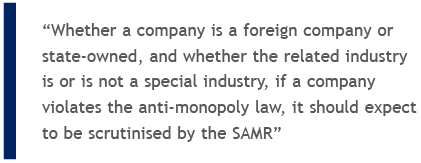
4. New identification on competitors — Shenzhen tally companies case
On July 20, 2018, the SAMR published a decision fining two Shenzhen tally companies a total of Rmb3,163,108 for entering into a horizontal monopoly agreement. According to the decision, China United Tally Shenzhen and China Ocean Shipping Tally Shenzhen reached and implemented an agreement to divide sales and service areas for the tallying market in the western area of the Port of Shenzhen. In addition, the two companies raised tallying prices from May 2013 to August 2016.
The notable feature of this case lies in the identification of the companies as independent competitors, for the two companies share the same shareholder, who owns a 50 percent share in the two companies respectively. First, the SAMR found that the companies’ ownership structures did not negate their competitive relationship. Although the shareholder owned a 50 percent interest in both companies, it performed different roles for each. The shareholder was the controlling shareholder in one tallying company while it did not hold a controlling position in the other tallying company. Second, the SAMR found that the two companies had been independently operated and managed. In addition, the SAMR relied on the companies’ articles of association and inquiry records of relevant staff to prove that there had been a competitive relationship between the two tallying companies. However, such detailed information was not disclosed in the SAMR’s decision.
During the investigation, the two companies argued that they were not competitors since they were both affiliates within the same group. However, the SAMR dismissed this argument for a number of reasons. It noted that according to the relevant provision regulating port management issued by the State Council and the Ministry of Transport: (1) port tally companies should introduce a competition mechanism to the market; and (2) any two tally companies in one port cannot be controlled by the same investment entity.
It seems that the SAMR adopts a strict view on the identification of competitors. Normally, if one shareholder owns 50 percent of the shares respectively in two companies, the two companies will be regarded as jointly controlled by the same shareholder (ie, the same entity). Moreover, the fact that two companies are actually competing with each other does not necessarily mean that they constitute competitors in the sense of the Anti-Monopoly Law, for the reason that different subsidiaries in the same group can also compete with each other.
This is one of the first cases to be announced by the newly established SAMR and may therefore indicate its attitude towards certain industries and behaviours. In particular, the way in which the competitors in this case were identified could raise new compliance challenges for companies operating business in China.

5. Penalties on individuals — Guangzhou Toyota dealer obstructing investigation case
In the Guangzhou Toyota’s dealer obstructing investigation case, individuals were penalised by Guangdong Development and Reform Commission (Guangdong DRC). In this case, when the Guangdong DRC investigated the Guangzhou Toyota dealer, its legal representative and general manager not only unplugged the USB of the officers that was used for evidence collection and storage, but also refused to return it as requested. The two involved individuals claimed the enforcement agents had no power to investigate and insulted the enforcement officers. The Guangdong DRC imposed Rmb20,000 of an aggregated fine on the two individuals involved.
Before this case, there are several obstructing investigation cases, eg Sunyard refusing to cooperate with an investigation and Longshunhe obstructing an antitrust investigation, etc. However, the Toyota dealer case is the first involving penalty of individuals rather than enterprises, being punished for not cooperating with investigation. In accordance with Article 42 of the Anti-Monopoly Law, the undertakings, interested parties or other entities or individuals shall cooperate during the antitrust authorities’ investigation and shall not refuse or obstruct the investigation. Furthermore, according to Article 52 of the Anti-Monopoly Law, a fine of up to Rmb100,000 may be imposed on an individual or up to Rmb1 million on an entity for not cooperating with investigation. The Toyota dealer case shows the serious attitude of antitrust authorities towards investigation. Particularly after the establishment of the SAMR in 2018, the intensity of anti-monopoly enforcement has increased, thus enterprises should enhance employees’ awareness of antitrust law compliance. When it comes to antitrust investigations, enterprises are encouraged to ensure that employees do not blindly ‘plead guilty’. On the other hand, employees should actively react to the investigation and cooperate with investigation pursuant to the law.
6. Obtaining termination of investigation by active rectification
In 2018, the SAMR and local enforcement agencies announced five cases in which the investigation was suspended or terminated, accounting for 24 percent of the total announced cases. The termination of investigated cases reflects the importance of cooperation and active rectification by the relevant enterprises under investigation. If the enterprise actively cooperates with the agency, the enforcement agency may issue a Decision on Suspension of Investigation based on the nature and duration of the violation, the assistance with the investigation and rectification commitment submitted by the enterprise under the investigation. After the rectification, the enforcement agency has the right to decide to terminate the investigation according to the effect of rectification. After obtaining the Decision on Termination, the enterprise would not be punished by the enforcement agency for alleged violations. Therefore, the enterprise that did implement a monopoly conduct could apply for suspension or termination of the investigation by active cooperation during the investigation and submitting rectification commitment and implementing rectification measures.
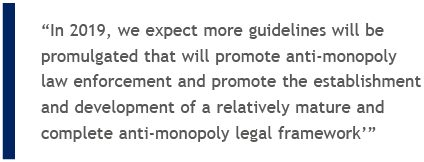
Conclusion and outlook
In 2018, antitrust authority enforcement concentrated on fields concerning people’s livelihoods — 18 out of 21 published cases were related to the livelihood area. Another focus was trade associations, with six announced cases related to trade associations. In addition, the pharmaceutical industry also drew the attention of the antitrust enforcement agencies. The SAMR has closed two cases relating to APIs enterprises in late 2018.
On December 27, 2018, the SAMR held a national market regulation conference. Zhang Mao, the director of the SAMR, summarised the work of 2018 and the priorities for the year of 2019, emphasising that competition enforcement would be strengthened in 2019. He stated that enforcement will continually focus on industries related to livelihood such as public welfare, pharmaceuticals, building materials and daily consumer goods. In addition, enforcement authorities will strengthen the investigation on monopoly agreement and abuse of dominant position. In terms of legislation, Zhang Mao pointed out that the revision progress of the Anti-Monopoly Law will speed up to further strengthen the rule of law. In 2019, we expect more guidelines will be promulgated that will promote anti-monopoly law enforcement and promote the establishment and development of a relatively mature and complete anti-monopoly legal framework.
Enterprises are advised to actively comply with anti-monopoly law, pay close attention to legislation and promote the awareness of compliance by employees. In particular, companies in the industries that the SAMR pays close attention to — ie, public welfare, APIs, building materials and daily consumer goods — should check their anti-monopoly compliance. When being investigated, the enterprises should actively cooperate with the investigation and actively submit rectification plans and relevant evidence in order to obtain termination of the investigation or reduced penalty.
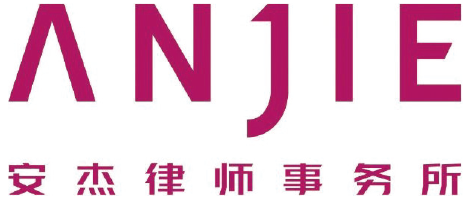
E: michaelgu@anjielaw.com
E: sunsihui@anjielaw.com
El: wuguici@anjielaw.com









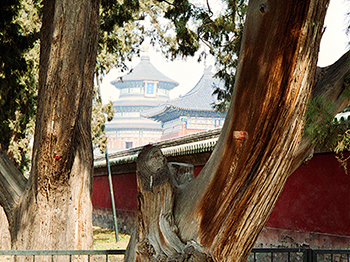



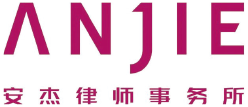 AnJie & Broad Law Firm
AnJie & Broad Law Firm







